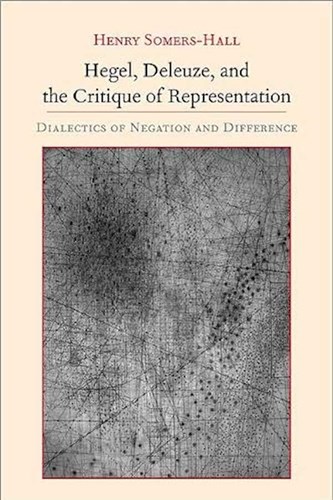Major publications of members of the Contemporary Political Theory Research Group include:
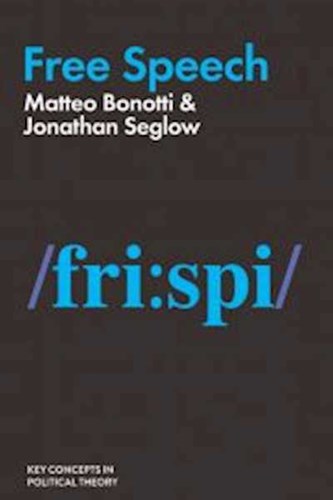 |
Jonathan Seglow and Matteo Bonotti, Free Speech (Polity, 2021), 180pp.
Freedom of speech is never very far away from political controversy. In recent years, the rise of populism, the ‘cancel culture’ phenomenon, and online hate attacks are among the developments that have kept it at the forefront of both public and academic discussion. In this new introduction to the subject, Matteo Bonotti and Jonathan Seglow offer an accessible analysis of debates around freedom of speech. They introduce and critically examine three major philosophical arguments for freedom of speech that are based on the values of truth, autonomy, and democracy. They apply these arguments to issues including hate speech, offensive speech, and pornography, and also tackle pressing current issues such as ‘fake news’ and public shaming. This book will be essential for anyone wishing to understand the contemporary significance and philosophical roots of free speech, and how it relates to debates about democracy, feminism and multiculturalism. |
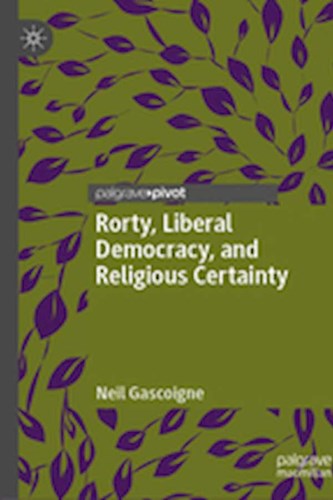 |
Neil Gascoigne, Rorty, Liberal Democracy, and Religious Uncetainty (Palgrave Pivot, 2019), 132pp. This book asks whether there any limits to the sorts of religious considerations that can be raised in public debates, and if there are, by whom they are to be identified. Its starting point is the work of Richard Rorty, whose pragmatic pluralism leads him to argue for a politically motivated anticlericalism rather than an epistemologically driven atheism. Rather than defend Rorty’s position directly, Gascoigne argues for an epistemological stance he calls ‘Pragmatist Fideism’. The starting point for this exercise in what Rorty calls ‘Cultural Politics’ is an acknowledgement that one must appeal to both secularists and those with religious commitments. In recent years ‘reformed’ epistemologists have aimed to establish a parity of epistemic esteem between religious and perceptual beliefs by exploiting an analogy in respect of their mutual vulnerability to sceptical challenges. Through an examination of this analogy, and in light of Wittgenstein’s On Certainty, this book argues that understood correctly the ‘parity’ argument in fact lends epistemological support to the argument that religious considerations should not be raised in public debate. The political price paid―paying the price of politics―is worth it: the religious thinker is provided with a good reason for maintaining that their practices and beliefs are not undermined by other forms of religious life. |
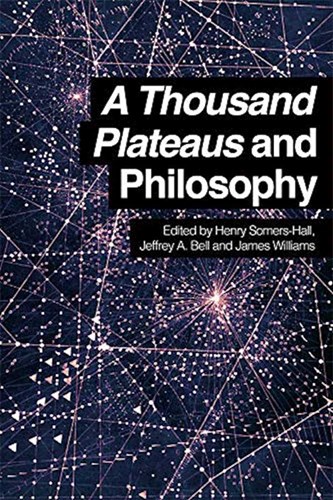 |
Jeffrey A. Bell, Henry Somers-Hall, and James Williams (eds), A Thousand Plateaus and Philosophy (Edinburgh University Press, 2018). A collaborative close reading of A Thousand Plateaus by some of the world's leading Deleuze and Guattari scholars. This volume brings together a team of international specialists on Deleuze and Guattari to provide in-depth critical studies of each plateau of their major work, A Thousand Plateaus. It combines an overview of the text with deep scholarship and brings a renewed focus on the philosophical significance of their project. A Thousand Plateaus represents a whole new way of doing philosophy. This collection supports the critical reception of Deleuze and Guattari's text as one of the most important and influential works of modern theory. An ideal companion to a plateau-by-plateau reading of Deleuze and Guattari's work. Contributors: Miguel de Beistegui (University of Warwick), Jeffrey A. Bell (Southeastern Louisiana University), Ronald Bogue (University of Georgia), Ray Brassier (American University of Beirut), Eugene W. Holland (Ohio State University) Emma Ingala (Universidad Complutense de Madrid), Simon O'Sullivan (Goldsmiths, University of London), Helen Palmer (Kingston Universit), Paul Patton (University of New South Wales), John Protevi (Louisiana State University), Daniel W. Smith (Purdue University), Henry Somers-Hall (Royal Holloway, University of London), Audrey Wasser (Miami University), Nathan Widder (Royal Holloway, University of London). James Williams (Deakin University). Three of Deleuze and Guattari’s foremost interpreters have assembled a fine and diverse collection of essays from prominent contemporary voices. This volume is at once comprehensive and provocative, exploring the many dimensions of one of the twentieth-century’s most vital philosophical texts. For those not familiar with A Thousand Plateaus this collection is a great place to start; for those who’ve been reading Deleuze and Guattari for years, this will provide new directions for future reading. – Claire Colebrook, Penn State University This is a much needed book. Arguably their most important book, A Thousand Plateaus remains to be fully understood. Somers-Hall, Bell, and Williams – important Deleuze and Guattari scholars in their own right – have brought together the best interpreters of Deleuze and Guattari. These interpreters systematically present A Thousand Plateaus plateau by plateau. The reader can examine a single plateau and then consult the corresponding chapter in A Thousand Plateaus and Philosophy. A Thousand Plateaus and Philosophy is not only a major contribution to our understanding of Deleuze and Guattari but also to thought itself. – Leonard Lawlor, Penn State University
|
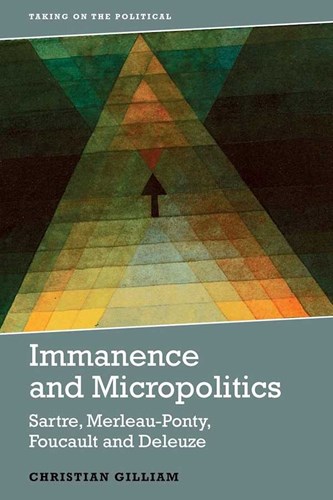 |
Christian Gilliam, Immanence and Micropolitics: Sartre, Merleau-Ponty, Foucault, Deleuze (Edinburgh University Press, 2017), 216 pp. Christian Gilliam argues that a philosophy of ‘pure’ immanence is integral to the development of an alternative understanding of ‘the political’; one that re-orients our understanding of the self toward the concept of an unconscious or ‘micropolitical’ life of desire. He argues that here, in this ‘life’, is where the power relations integral to the continuation of post-industrial capitalism are most present and most at stake. Through proving its philosophical context, lineage and political import, Gilliam ultimately justifies the conceptual necessity of immanence in understanding politics and resistance, thereby challenging the claim that ontologies of ‘pure’ immanence are either apolitical or politically incoherent. In his deft study, Gilliam provides a lineage of French philosophy from Sartre to Deleuze that grounds a conception of immanence increasingly employed within contemporary political theory. Beginning with the way Sartre’s philosophy moved increasingly towards a kind of ontological immanence, he shows how this thought is taken further in Merleau-Ponty’s conception of the flesh, Foucault’s micropower relations, and Deleuze’s concepts of disjunction, folding and desiring-production. In this way, Gilliam shows how immanence is necessarily cashed out in an understanding of politics as micropolitics. – Nathan Widder, Royal Holloway, University of London |
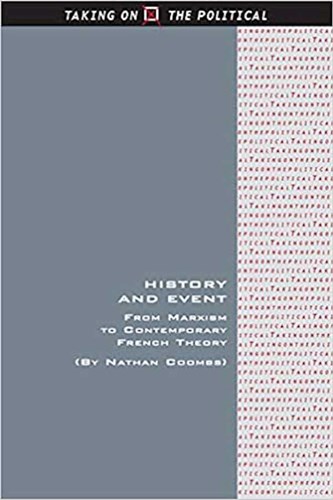 |
Nathan Coombs, History and Event: From Marxism to Contemporary French Theory (Edinburgh University Press, 2016), 224 pp. Nathan Coombs demonstrates that the Marxist science of history has been reimagined by a strand of contemporary French theory after Louis Althusser. Taking a comparative approach, he explores the technical details of both traditions historical sciences. He argues that their articulations of history and event affect how we approach political transformation and view the role of theoreticians in political practice. Coombs establishes the continuities and discontinuities between classical Marxism and Althusserian theory, bringing you new readings of Hegel, Marx, Lenin, Althusser, Badiou, Meillassoux and complexity theory. Coombs pays tribute to Marx as the master of historicization who challenged orthodoxies with rationalism. This absorbing study acknowledges the power of 'grand narratives' by considering how they are made to arise, and it shows us how crucial beauty, bravado and imagination are to a science of the event.– Terrell Carver, Professor of Political Theory, University of Bristol This is a valuable and important book… It gives a good overview of this important field of issues; and, most importantly, it seeks to bring Marxism and recent French theory back into a dialogue which has been lacking for a long time now, and that is to be welcomed. – Sean Sayers, University of Kent, Science & Society
|
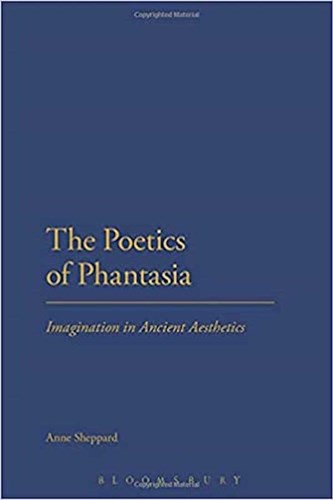 |
Anne Sheppard, The Poetics of Phantasia: Imagination in Ancient Aesthetics (Bloomsbury, 2014), 136 pp. With a thorough examination of ancient views of literary and artistic realism, allegory and symbolism, The Poetics of Phantasia brings together a study of the ways in which the concept of imagination (phantasia in Greek) was used in ancient aesthetics and literary theory. The Greeks and Romans tended to think of the production of works of art in terms of imitation, either of the world around us or of a transcendent ideal world, rather than in terms of originality and creativity. Study of the way phantasia is used in ancient writing about literature and art reveals important features of the ancient approach to the arts and in doing so will also shed light on modern concepts of imagination and the literary and artistic differences between realism and allegory. Covering a range of literary and philosophical material from the beginnings of Greek literature down to the Neoplatonist philosophers of late antiquity, The Poetics of Phantasia discusses three discrete senses of imagination in ancient thought. Firstly, phantasia as visualization is explored: when a writer 'brings before his eyes' what he is describing and enables his audience or reader to visualise it likewise. The second theory of phantasia is that which is capable not only of conveying images from sense-perception but also of receiving images from intellectual and supra-intellectual faculties in the soul, and thus helping people grasp mathematical, metaphysical or even mystical concepts. Finally, phantasia is seen as a creative power which can conjure up an image that points beyond itself and to express ideas outside our everyday experience. “This elegant, slim volume contributes to the vast literature on phantasia and imagination in Greek thought ... [It] is a rewarding study that should be widely consulted.” – James I. Porter, University of California, Irvine, Australasian Journal of Philosophy
|
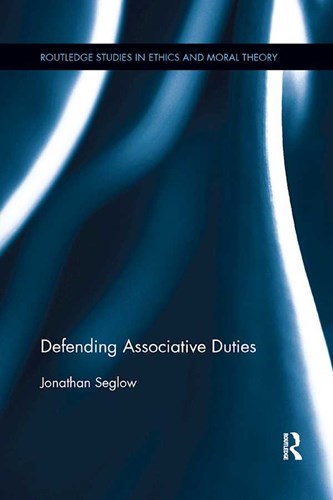 |
Jonathan Seglow, Defending Associative Duties (Routledge, 2013). 226pp. This book explores the associative duties we owe to our children, parents, friends, colleagues, associates and compatriots and defends a novel account which justifies such duties through the realization of values that are produced in these various kinds of social relationships. Seglow engages with several key contemporary debates including parental rights over children’s education, the burdens of eldercare, permissible partiality to friends, and global justice versus compatriot duties. |
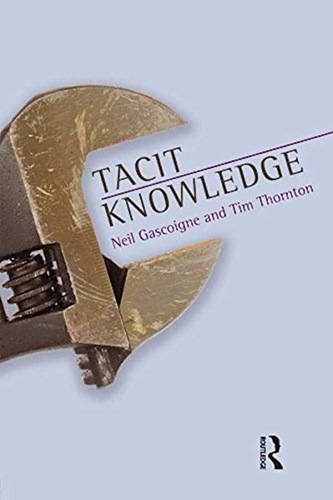 |
Neil Gascoigne and Tim Thornton, Tacit Knowledge (Acumen Press, 2013). 224pp. Tacit knowledge is invoked in a wide range of intellectual inquiries, from traditional academic subjects like psychology, sociology and linguistics to more pragmatically orientated investigations into the nature and transmission of skills and expertise. Notwithstanding its apparent pervasiveness, the notion of 'tacit knowledge' is a complex and puzzling one. What is its status as knowledge and what is its relation to explicit knowledge? What does it mean to say that knowledge is tacit? Can it be measured? Recent years has seen growing interest from philosophers in understanding the nature of tacit knowledge. Philosophers of science have discussed its role in scientific problem solving; philosophers of language have been concerned with the speaker's relation to grammatical theories; and phenomenologists have attempted to describe the relation of explicit theoretical knowledge to a background understanding of matters that are taken for granted. This book aims to bring unity to these diverse philosophical discussions by clarifying their conceptual underpinnings; to advance a specific account of tacit knowledge that elucidates the importance of the concept for understanding the character of human cognition; and to demonstrate the relevance of the recommended account to those concerned with the communication of expertise. |
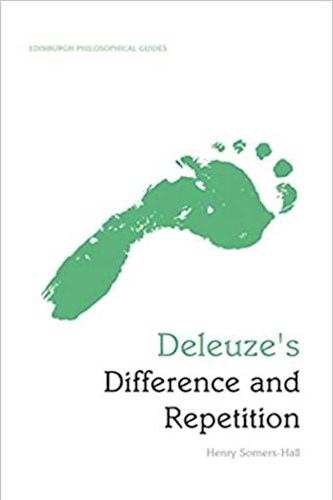 |
Henry Somers-Hall, Deleuze's Difference and Repetition: An Edinburgh Philosophical Guide (Edinburgh University Press, 2013). 224pp. When students read Difference and Repetition for the first time, they face two main hurdles: the wide range of sources that Deleuze draws upon and his dense writing style. This Edinburgh Philosophical Guide helps students to negotiate these hurdles, taking them through the text step by step. It situates Deleuze within Continental philosophy more broadly and explains why he develops his philosophy in his unique way. Seasoned Deleuzians will also be interested in Somers-Hall's novel interpretation of Difference and Repetition. |
|
|
Henry Somers-Hall, Hegel, Deleuze, and the Critique of Representation: Dialectics of Negation and Difference (State University of New York Press, 2012). 306pp. Hegel, Deleuze, and the Critique of Representation provides a critical account of the key connections between twentieth-century French philosopher Gilles Deleuze and nineteenth-century German idealist G. W. F. Hegel. While Hegel has been recognized as one of the key targets of Deleuze’s philosophical writing, Henry Somers-Hall shows how Deleuze’s antipathy to Hegel has its roots in a problem the two thinkers both try to address: getting beyond a philosophy of judgment and the restrictions of Kant’s transcendental idealism. By tracing the development of their attempts to address this problem, Somers-Hall offers an interpretation of the sweep of nineteenth- and twentieth-century philosophy, providing a series of analyses of key moments in the history of thought, including the logics of Aristotle and Russell, Kant’s own philosophy of judgment, and the philosophy of Bergson. He also develops a novel interpretation of Deleuze’s philosophy of difference, and situates his philosophy in relation to the broader post-Kantian tradition. In addition to Deleuze’s relation to Hegel, the book makes important contributions to the study of Deleuze’s philosophy of mathematics, as well as to the study of several underappreciated areas of Hegel’s own philosophy. “Neither simply disdainful of Hegel, nor wholly convinced by Deleuze, in this rich, wide-ranging volume, Henry Somers-Hall offers what is assuredly the most comprehensive and important treatment of their varied and complex relations to date … a rewarding and recommended read for anyone interested in the ongoing development of Continental philosophy.” — Notre Dame Philosophical Reviews “This is the most comprehensive and philosophically interesting analysis of the Deleuze-Hegel relation. Somers-Hall has assembled a remarkable amount of material that is quite diverse—from the problems of representation, judgment, and calculus to those of force and evolution—and his interpretations are masterful. This book will have a significant impact on the way we think about the development of twentieth-century philosophy.” -- Leonard Lawlor, Sparks Professor of Philosophy, Penn State University “Somers-Hall’s book is a profound engagement with both Deleuze and Hegel, and it provides a much-needed antidote to interpretations that all-too-quickly characterize Deleuze as anti-Hegelian.” -- Daniel W. Smith, Purdue University. |
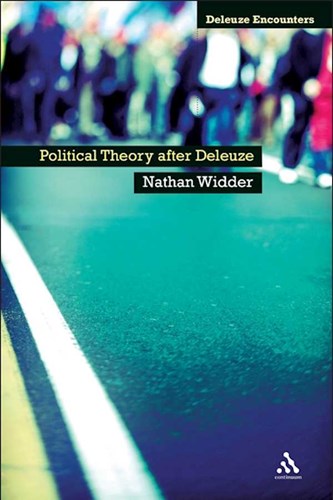 |
Nathan Widder, Political Theory after Deleuze (Continuum Press, 2012). 210pp. Recent political theory has shifted decidedly towards ontology, the ‘science of being’, and thus towards examining fundamental concepts of identity, difference, space, and time. This new focus has reinvigorated questions concerning the nature of power, meaning, truth and agency, inspiring novel approaches to individual and collective subjectivity, the emergence of political events and the relationship between desire and politics. In this new study, Nathan Widder shows how Deleuze’s philosophy both inspires and presses beyond political theory’s ‘ontological turn’. Linking his thought to current political theory debates, Widder explains how Deleuze’s philosophy and ontology of difference are cashed out through a micropolitics of creative and critical experimentation. He further demonstrates how Deleuze challenges ideas of identity and the subject that still dominate both political thought and practice today. Connecting Deleuze to key figures in both classical and contemporary political philosophy, from Plato and Aristotle to Hegel, Nietzsche, Lacan, and Foucault, this book will be of interest to students and scholars in political theory, philosophy, and related disciplines, looking to engage the emerging field of Deleuze studies. "Looking for the introduction to Deleuze and political theory? You've found it. Nathan Widder gives the most clear and persuasive account of why Deleuze's philosophy matters for contemporary political thought. He situates this significance through an outstanding account of the place of Deleuze among historical and contemporary theories and figures, notably Hegel, Nietzsche and Lacan. The book also explains how Deleuze announces a new departure for political action and critique. In addition to a wonderful array of concrete examples, the book supports its arguments through an exemplary reading of Deleuze's works. A joy to read, and a joy to apply..." -- Professor James Williams, University of Dundee, UK "Nathan Widder provides a remarkably accessible introduction to Deleuze’s ontology and its implications for political thought. He explains Deleuze’s distinctive contribution to contemporary political theory, namely that ‘we are micropolitical before we are political,’ by way of an informative tour through some of his most difficult texts, including Difference and Repetition, Nietzsche and Philosophy and Anti-Oedipus (co-written with Guattari). This book is an indispensable handbook to Deleuze’s key concepts that will be of interest to beginners as well as advanced students of Deleuze’s thought." -- Paul Patton, Professor of Philosophy, University of New South Wales, Australia |
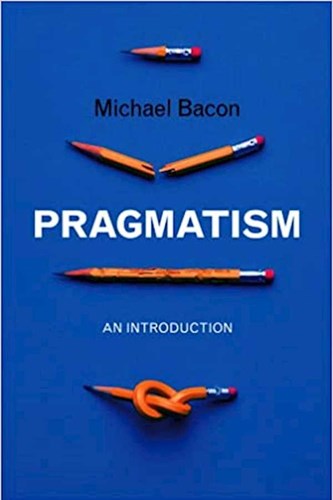 |
Michael Bacon, Pragmatism: An Introduction (Polity Press, 2012). 224pp. Pragmatism: An Introduction provides an account of the arguments of the central figures of the most important philosophical tradition in the American history of ideas, pragmatism. This wide-ranging and accessible study explores the work of the classical pragmatists Charles Sanders Peirce, William James and John Dewey, as well as more recent philosophers including Richard Rorty, Richard J. Bernstein, Cheryl Misak, and Robert B. Brandom. Michael Bacon examines how pragmatists argue for the importance of connecting philosophy to practice. In so doing, they set themselves in opposition to many of the presumptions that have dominated philosophy since Descartes. The book demonstrates how pragmatists reject the Cartesian spectator theory of knowledge, in which the mind is viewed as seeking accurately to represent items in the world, and replace it with an understanding of truth and knowledge in terms of the roles they play within our social practices. The book explores the diverse range of positions that have engendered marked and sometimes acrimonious disputes amongst pragmatists. Bacon identifies the themes underlying these differences, revealing a greater commonality than many commentators have recognized. The result is an illuminating narrative of a rich philosophical movement that will be of interest to students in philosophy, political theory, and the history of ideas. "This book offers an engaging and engrossing introduction to and overview of a rich philosophical tradition. Particularly valuable is its survey of a variety of recent and contemporary developments by thinkers who build on and carry forward that tradition." -- Robert B. Brandom, University of Pittsburgh "Brings together classical and contemporary pragmatists in a very clear, succinct, and rigorous way." -- Cheryl Misak, University of Toronto "Bacon has made an impressive contribution with this book. It is a lucid and fair–minded map of the pragmatist tradition, and an excellent introduction to the topic." -- Matthew Festenstein, University of York |
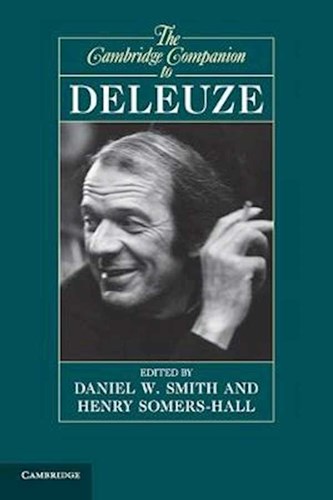 |
Henry Somers-Hall and Daniel W. Smith (eds), The Cambridge Companion to Deleuze (CUP, 2012). 392pp. Gilles Deleuze (1925–95) was an influential and provocative twentieth-century thinker who developed and presented an alternative to the image of thought found in traditional philosophy. This volume offers an extensive survey of Deleuze's philosophy by some of his most influential interpreters. The essays give lucid accounts of the fundamental themes of his metaphysical work and its ethical and political implications. They clearly situate his thinking within the philosophical tradition, with detailed studies of his engagements with phenomenology, post-Kantianism and the sciences, and also his interventions in the arts. As well as offering new research on established areas of Deleuze scholarship, several essays address key themes that have not previously been given the attention they deserve in the English-speaking world. |
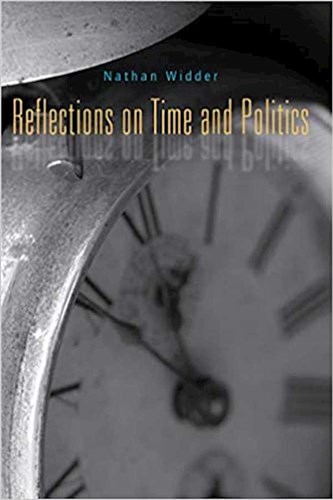 |
Nathan Widder, Reflections on Time and Politics (Penn State University Press, 2008). 224pp. Recent philosophical debates have moved beyond proclamations of the "death of philosophy" and the "death of the subject" to consider more positively how philosophy can be practiced and the human self can be conceptualized today. Inspired by the writings of Nietzsche, Bergson, and Deleuze, rapid changes related to globalization, and advances in evolutionary biology and neuroscience, these debates have generated a renewed focus on time as an active force of change and novelty. Rejecting simple linear models of time, these strands of thought have provided creative alternatives to a traditional reliance on fixed boundaries and stable identities that has proven unable to grapple with the intense speeds and complexities of contemporary life. In this book, Nathan Widder contributes to these debates, but also goes significantly beyond them. Holding that current writings remain too focused on time's movement, he examines more fundamentally time's structure and its structural ungrounding, releasing time completely from its traditional subordination to movement and space. Doing this enables him to reformulate entirely the terms through which time and change are understood, leading to a radical alteration of our understandings of power, resistance, language, and the unconscious, and taking post-identity political philosophy and ethics in a new direction. Eighteen independent but interlinked reflections engage with ancient philosophy, mathematical theory, dialectics, psychoanalysis, archaeology, and genealogy. The book's broad coverage and novel rereadings of key figures including Aristotle, Bergson, Nietzsche, Foucault, and Deleuze make this a unique rethinking of the nature of pluralism, multiplicity, and politics. |
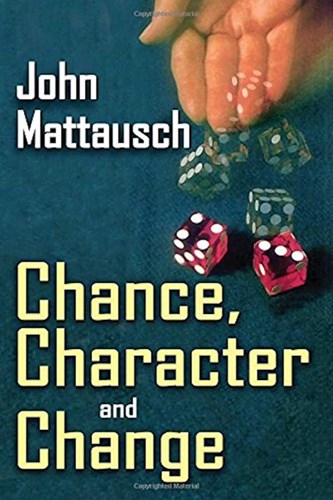 |
John Mattausch Chance, Character and Change (Transaction Publishers, 2008). 276pp. Chance is real. Not only is it a cause of societal change, but we as individuals are chance-given characters who discover and build our character in chancy circumstances. Chance is also expressed as coincidence and contingency, expressions which have episodically been of undeniable historical importance. Mattausch asserts the conventional picture of societal change is incorrect. Societal change is not a linear succession with each phase of change replacing its predecessor. Instead, the process is one of accumulative change in which chance plays various roles. "Chance, Character, and Change" develops the idea of chance, situating it within the history of thought and social change.By focusing strictly on manifestations of chance and of luck that can be seen and explained, Mattausch is able to show how chance acts in the environment of evolution and the social practices that regulate the inheritance of knowledge and technology. This, in turn, steers societal change and how change itself occurs. Chance's role is often characterized as coincidence or contingency, and this automatically is seen as progressive or degenerate. However, Mattausch notes that accumulative change is potentially both progressive as well as decadent. Chance also plays a part in the social aspects of our world - customs, practices, cultures, societies, and politics. When we act, Mattausch argues, we do not distinguish between good and bad, but rather between determinism and chance; the latter is a test of character, not of free will.This theory is general in its assertions and application, and can be related to many areas of study from economic theory, to human behavior, to politics. The rich texture of the writing and vivid use of examples from daily life and the work of other major thinkers draw in the reader. |
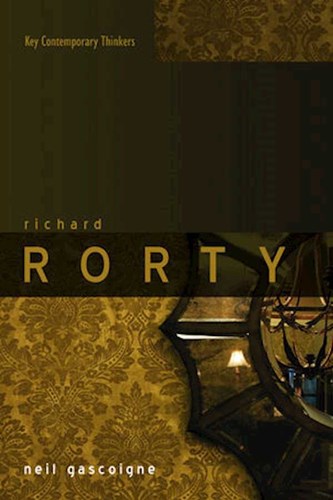 |
Neil Gascoigne, Richard Rorty: Liberalism, Irony and the Ends of Philosophy (Polity Press, 2008). 208pp. Neil Gascoigne provides the first comprehensive introduction Richard Rorty′s work. He demonstrates to the general reader and to the student of philosophy alike how the radical views on truth, objectivity and rationality expressed in Rorty′s widely–read essays on contemporary culture and politics derive from his earliest work in the philosophy of mind and language. He avoids the partisanship that characterizes much discussion of Rorty′s work whilst providing a critical account of some of the dominant concerns of contemporary thought. Beginning with Rorty′s early work on concept–change in the philosophy of mind, the book traces his increasing hostility to the idea that philosophy is cognitively privileged with respect to other disciplines. After the publication of Philosophy and the Mirror of Nature, this led to a new emphasis on preserving the moral and political inheritance of the enlightenment by detaching it from the traditional search for rational foundations. This emerging project led Rorty to champion ′ironic′ thinkers like Foucault and Derrida, and to his attempt to update the liberalism of J. S. Mill by offering a non–universalistic account of the individual′s need to balance their own private interests against their commitments to others. By returning him to his philosophical roots, Gascoigne shows why Rorty′s pragmatism is of continuing relevance to anyone interested in ongoing debates about the nature and limits of philosophy, and the implications these debates have for our understanding of what role the intellectual might play in contemporary life. This book serves as both an excellent introduction to Rorty′s work and an innovative critique which contributes to ongoing debates in the field. |
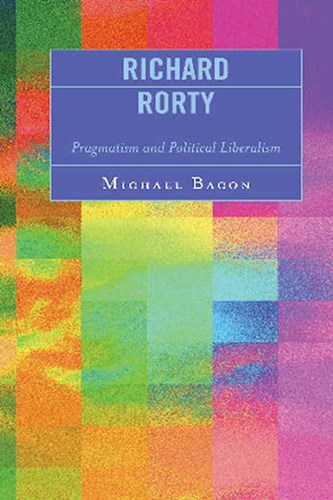 |
Michael Bacon Richard Rorty: Pragmatism and Political Liberalism (Rowman & Littlefield, 2007). 144pp. Michael Bacon gives a critical presentation of Rorty's writings on pragmatism and political theory, comparing and contrasting him with pragmatists such as Hilary Putnam and Susan Haack, and liberals such as John Rawls and Brian Barry. The result is an imaginative presentation of one of contemporary philosophy's most innovative and important thinkers. |
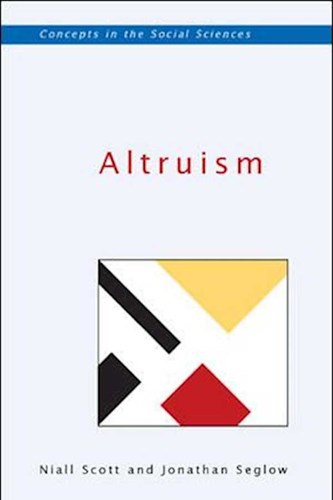 |
Niall Scott and Jonathan Seglow Altruism (Open University Press, 2007). 192pp. What motivates us to be altruistic? How did an altruistic trait evolve in humans, given that evolutionary theory assumes we are self-interested? What sorts of people are altruistic and in what circumstances? Is the welfare state a channel for altruism or does it crowd out people's altruistic motivations? This accessible book is the first introduction to the idea of altruism. It explores how we have come to be altruistic, and considers why it is important to remain altruistic, not just for the sake of others, but in order maintain the fragile fabric of human society. The book surveys the history of the concept of altruism and examines it from a variety of disciplinary perspectives, including moral philosophy, evolutionary biology, psychology, economics and political science. It then attempts to bring together the distinct issues and concerns of these disciplines to arrive at a unified understanding of altruism. Scott and Seglow argue that altruism is easily extinguished and hard to nourish, but vital for a fundamentally human future. |
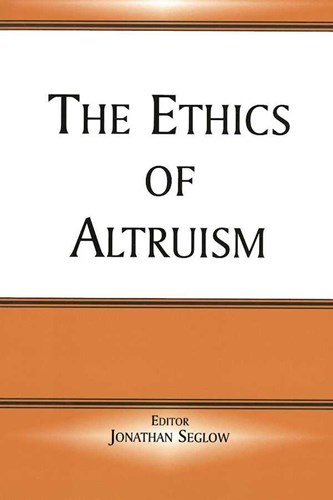 |
Jonathan Seglow (ed) The Ethics of Altruism (Frank Cass, 2004). 256pp. 'The chief problem of human life', wrote Auguste Comte, is 'the subordination of egoism to altruism'. This collection xamines the nature and value of altruism as a moral virtue, restoring it to its proper place at the centre of our moral and political thinking. The first five essays in the collection explore the relationship between altruism and other moral concepts such as self-interest, autonomy, community and impartiality. The five essays in the second part show how altruism is invoked in practical moral problems, including aid to developing countries, the market for human body parts, multiculturalism and the politics of recognition, and medical ethics. Through these discussions, the central role of altruism in moral thinking is brought into sharper focus. |
 |
Nathan Widder Genealogies of Difference (University of Illinois Press, 2002). 204pp. Genealogies of Difference combines critical engagements with modern and postmodern theories of identity, difference, contingency, and time with strategic forays into ancient, early Christian, and medieval philosophy. Without losing sight of complex contributions from the past, Nathan Widder provides the philosophical underpinnings for a politics and ethics of difference crucial to our present day. Lucid and distinctive, this volume is an important, in-depth contribution to contemporary debates on pluralism, multiplicity, and community. Widder addresses the substantial body of theoretical discourse on difference without neglecting the history of political thought or the contemporary criticisms of the tradition. His genealogical endeavor develops a concept of difference indispensable to a postmodern world of blurred boundaries and hybrid forms that exceed our traditional categories of understanding. |










